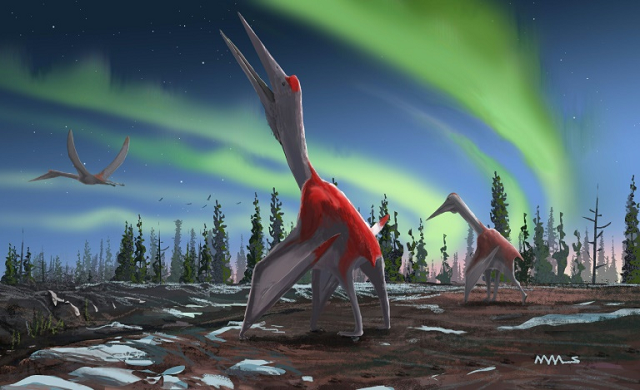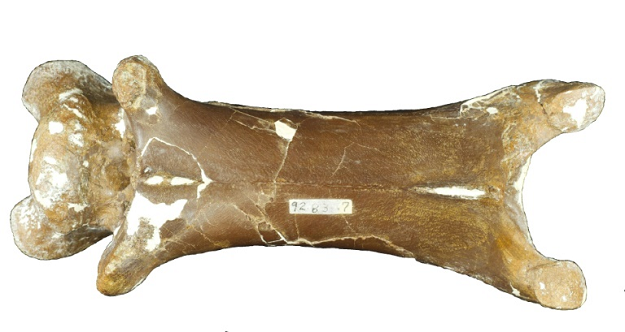
With a wingspan of ten metres and weighing 250 kilos, Cryodrakon boreas rivals another pterosaur as the largest flying animal of all time, researchers reported in the Journal of Vertebrate Paleontology.
"This is a cool discovery," said David Hone, lead author of the study and a researcher at Queen Mary University in London.
Strengthening science and technology
"It is great that we can identify Cryodrakon as being distinct from Quetzalcoatlus," the other giant pterosaur for which it was initially mistaken, he said in a statement.
C. boreas was hiding in plain sight.
 Fossil of a neck bone of a full-grown Cryodrakon boreas, a newly discovered species of pterosaur. PHOTO: AFP
Fossil of a neck bone of a full-grown Cryodrakon boreas, a newly discovered species of pterosaur. PHOTO: AFPIts remains were first discovered more than 30 years ago in Alberta, Canada, yet elicited scant excitement because of the misclassification.
But a closer look at the fossil remains of a juvenile and the intact giant neck bone of a full-grown specimen left no doubt that a new species had been discovered.
Like other winged reptiles living at the same time, about 77 million years ago, C. boreas was carnivorous and probably fed on lizards, small mammals and even baby dinosaurs.
NASA pioneers malaria-predicting tech in Myanmar
Despite a likely capacity to cross large bodies of water, the location of fossil remains and the animal's features point to an inland habitat, Hone said.
There are more than 100 known species of pterosaurs.
Despite their large size and wide distribution -- across North and South America, Asia, Africa and Europe -- only fragmentary remains have been unearthed, making the new find especially important.





1732347751-0/Express-Tribune-(1)1732347751-0-270x192.webp)


1732264554-0/Copy-of-Untitled-(68)1732264554-0-270x192.webp)

1732259816-0/Express-Tribune-(4)1732259816-0-270x192.webp)






COMMENTS
Comments are moderated and generally will be posted if they are on-topic and not abusive.
For more information, please see our Comments FAQ